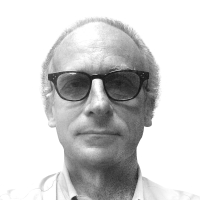Today marked the end of another TED conference that you were not invited to. Audience members in Long Beach, Calif., paid a chill $7,500 (online access provided without charge) for a week’s worth of far-reaching, high-concept, cutting-edge, fearless lectures by people who sure know how to talk.
TED, acronymic for Technology, Entertainment, and Design, is a frequently recurring conference that has set as its mission to shovel around “ideas worth spreading.” It has been a big deal for a certain type of passive egghead for a while now, bringing together brand-name speakers such as Bill Clinton and Al Gore (though not together), Bill Gates, and various Nobel winners, wannabe Nobel winners, and those who are close friends of Nobel winners to, well, talk.
Every year the many TED groupies come to the conference (their names and the top 10 to meet are listed—though for members only) on the premise that the world is starved for ideas and riveting talk and that the only chance for humanity is for special lecturers to talk often and in well-appointed rooms. Frequently. So talk they do—the lecturers, the people attending the lectures, the people writing about the people attending the lectures.
Though the TED conferences are only a few decades old, they already have established an enviable foothold in the cosmology of the ultracool. TED is the hipster combination of New Age vagueness and Bohemian Grove old money—but instead of Himalayan crystals or naked rich Republican bigwigs popping towels at each other while discussing Sweden’s GNP, here we have svelte men with a steady eye outfitted in turtlenecks, tasteful (but not flashy) blazers, and tomorrow’s cantilevered mikes. They speak in hushed tones before a tasteful (but not flashy) dark backdrop, looking as though they just stepped off the starship Enterprise.
Earthlings! We are here to tell you about the Future! We know everything about the Future! We live there and want to tell you what we know! We are very important to the Future! Integral! Transformative! But Earthlings! You turn out not to be important to the Future! Not at all! Thank you and good night. Neurotics, relax. TED is a club that you not only are not a member of, but there is no chance (read: zero) you will ever get near the place. The cool guys finally have their own pad, full of the doodads and gizmos to support the suave bachelor life.

America, of course, has a long history of supporting that vaguely defined confederacy of breezy avatars who remind us of our own mousiness, our struggles, our embarrassing cousins. Usually it’s Hollywood fare, from Jack and Angelica to Brad and Angelina, and not the brainiacs—suggesting that TED represents something new. Which raises the basic question, is it so bad for America to worship brains and not actors with bright teeth? Isn’t this progress?
Well, no, actually. Granted, TED arose out of a genuine necessity, a need for technogeeks to talk to one another. But within a decade or so, the dawn of the TED Era began, and we saw a change—Steve Jobs and those guys migrated from their bookish nerdery (I mean, what was DOS, anyhow?) and found themselves at the very height of hip, combining the vision thing, big bucks, and scientific brilliance in a field none of us could master. So one by one, they crawled like heliotropic bugs to the light—the TED spotlight that is—bringing with them the Nobel laureates and presidents and all the others who wanted a free tutorial on operating their laptop.
Nowadays, though, TED spells trouble for several reasons. First, it doesn’t celebrate a love of smart people, really; it celebrates a love of smart-style people. Just as kosher-style food looks and kinda acts like the real thing, but isn’t, so too are the diplomats of TED U kinda full of it. TED provides the Cliffs Notes versions of the talks right there online (TED quotes), little gnomic cyber-samplers (“If we study what is merely average, we will remain merely average” and “I share, therefore I am”) you can sprinkle around without really understanding a drop of the work that stands behind the claim.
As such, TED is a direct descendant of another American favorite: the get-better-quick scheme, that never-resolved adolescent fantasy once conducted on the back page of comic books, where Norman Rockwell taught us how to draw in five weeks, Charles Atlas built our pecs in 30 days, we learned fluent French overnight, and a chinchilla farm gave us our first cool million. The secret, of course, was not acquisition of mastery, but acquisition of the shortcut: let all the other knuckleheads sweat it out—I got a free ticket to Easy Street!
But these examples of low-grade intellectual fraud, although exasperating, aren’t the main problem with TED. No, the problem with TED is more complicated and worrisome, for this is a strange time to be smart, or to want to be smart, in America. The rational mind is under constant assault from the not-so-far-right-anymore right; as we recently learned, college now is a snob haven. People with information and an inclination to use it are viewed as contemptible nonbelievers, insincere blowhards, showoffs, sissies, maybe not even American.
TED and their entire starship Enterprise world feed directly into many people’s instinctive distrust of the intellectual (and the Santorumians’ absolute contempt). With the provocation, TEDdies are dragging down with them actual American intellectuals (yes, they exist). These are the real gym rats who fret their way through daily confusion and panic; hostile, never-ending scientific-turf wars; and lousy funding to squeeze out a drop of truth—people who scare us not because they are cool, but because they are so frantically intense and of a single lumpish piece. Not that the TEDdies care about the trouble, really. They already are getting their slides together for the next big powwow.






